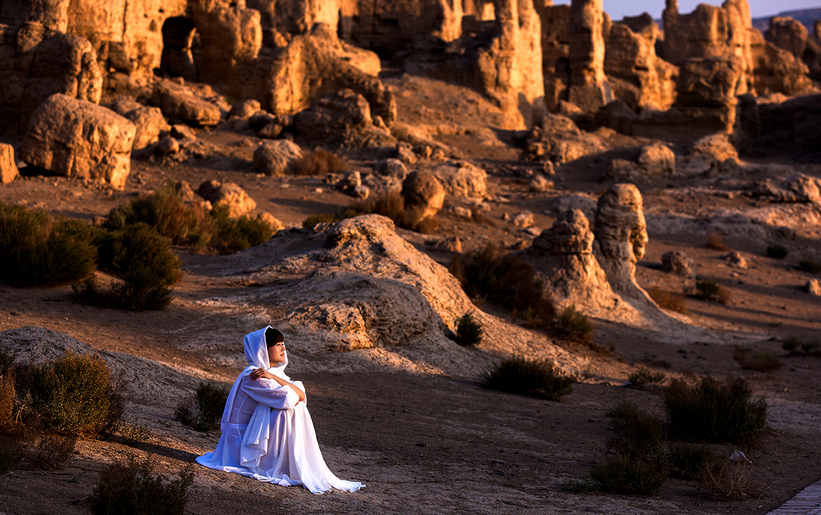
Ancient Jiaohe Ruined Town was a town of Xizhou Uigurs. At the end of Yuan Dynasty, Jiaohe was a part of Turpan and later the town was destroyed.
2023/07/23
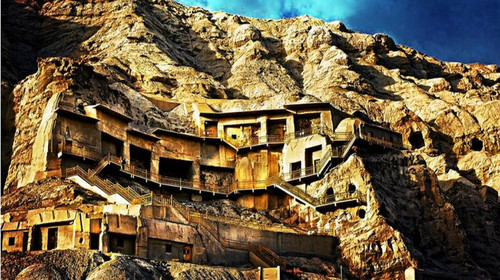
Kizil Thousand Buddha Caves are seen on the cliffs of Querdagh Mountain. Kizil Grottoes arts were the birth place for Qiuci Grottoes arts.
2017/07/13
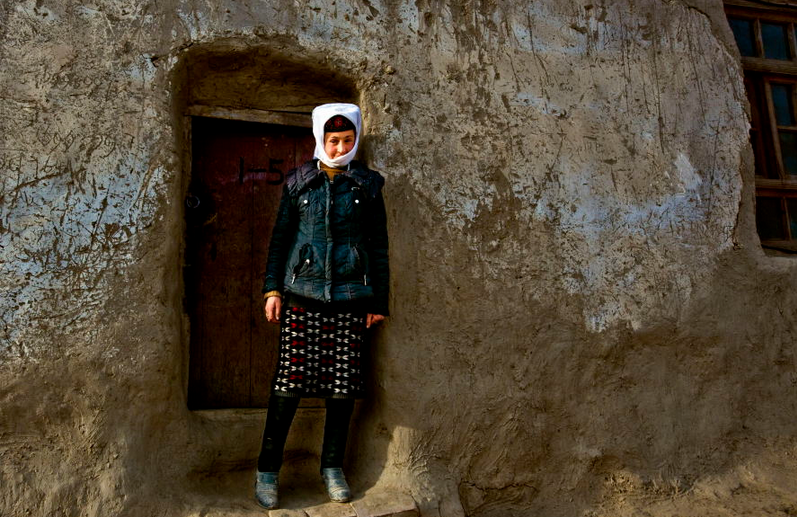
With a population of 36,000 in Xinjiang, Tajiks live in Tashkurgan Tajik Autonomous County, and the rest inhabit in the areas in southern Xinjiang, including Shache, Zepu, Yecheng and Pishan. The origin of the Tajik people can be traced to eastern Iranian and moved from the western Pamirs to Tashkurgan.
2017/07/12
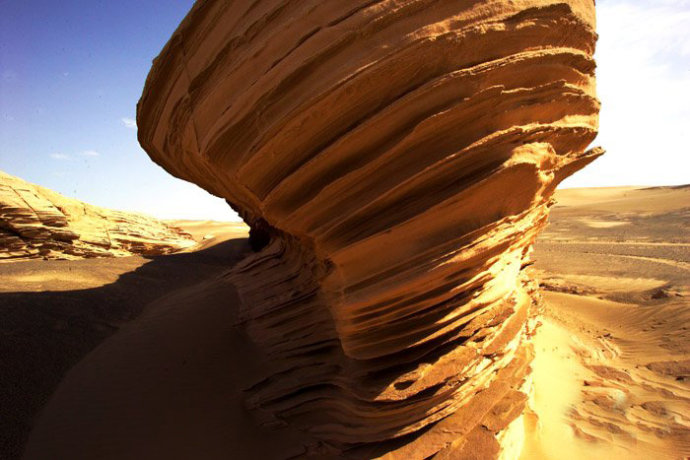
Yardan is a word used by some scholars who explored the Lop Nur and later it became a topographical term. Because of strong water corrosion and fierce wind erosion, a series of parallel ditches and ditch ridges have formed in the clay rock area, which look like “buildings” and “alleys” in the city. Therefore, it is named “wind city”. According to the characteristics, Yardan is termed as Ghost Town and stonr trees. The most marvelous wind cities are Wuerhe Ghost Castle in Karamy, Qitai Ghost Castle and Hami Ghost Castle.
2017/07/11
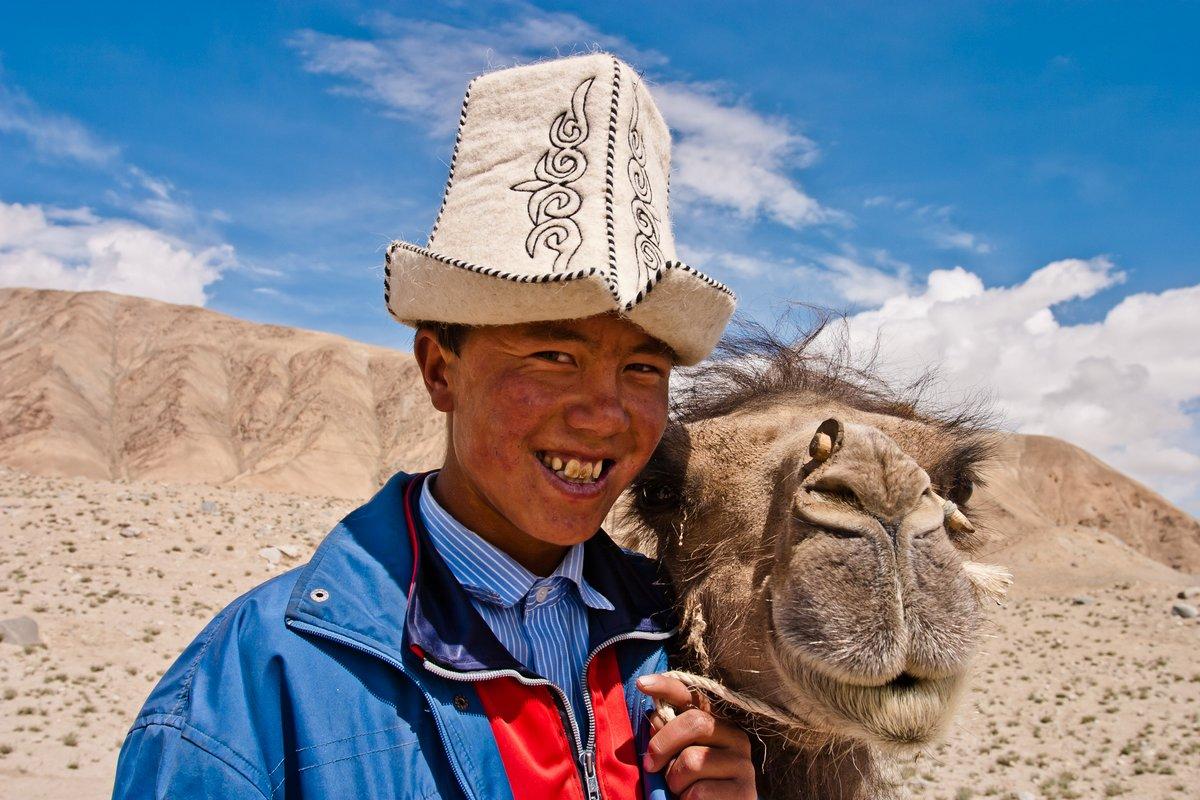
Kirkiz is a Turkic name used by the Xinjiang Kirkiz people, and it means “forty girls”, “forty tribes” or “grassland people”. The forerunners of the Kirkiz peopled were recorded in various names, such as Gekun, Jiankun, Hegu, Jiegesi, Xiagesi, Jilijisi, Qierjisi and Bulute.
2017/07/08
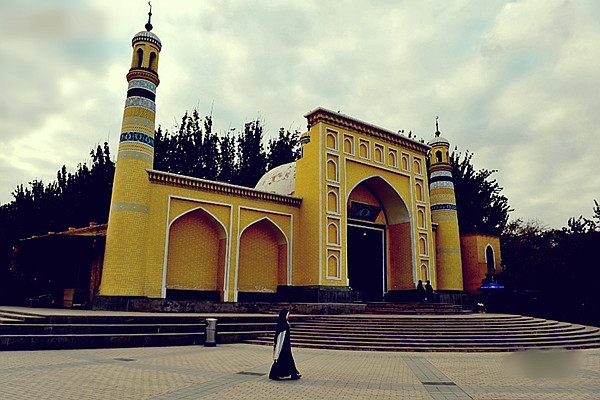
The Id Kah Mosque, a magnificent Islamic building at the center of Kashgar City, has a history of more than 500 years.
2017/07/07

The Apak Hoja Mausoleum is the largest and most influential Islamic burial place in Xinjiang.
2017/07/06
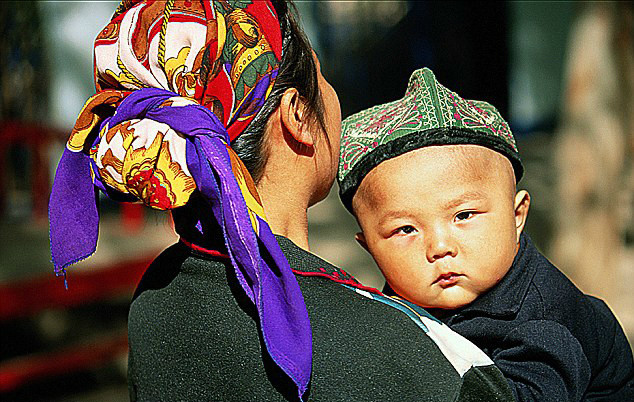
With a population of 8,500, the Chinese Russians in Xinjiang live in the cities of Ili, Tacheng, Altay and Urumqi.
2017/07/04
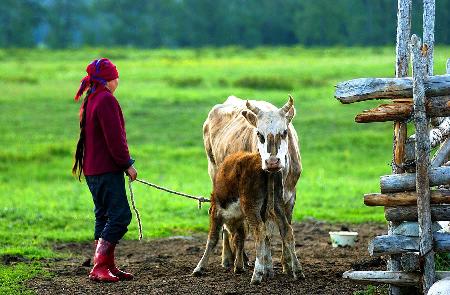
At the foot of Altai Mountains, there is a group——Tuva People. With a population about 2,500, most of them live in Baihaba Village, Hemu Tuva Village in Burqin County and Kanas village. Tuva people have their own language but do not have writing system.
2017/07/03
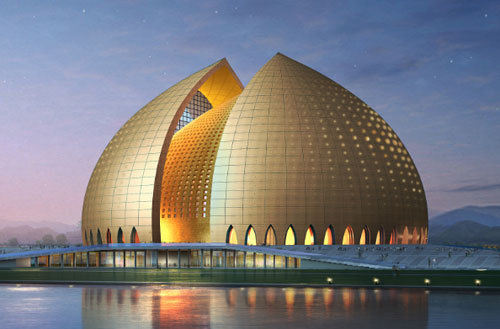
Visitors will be attracted by the distinctive styles of architectures of Xinjiang ethnic nationalities.
2017/07/01